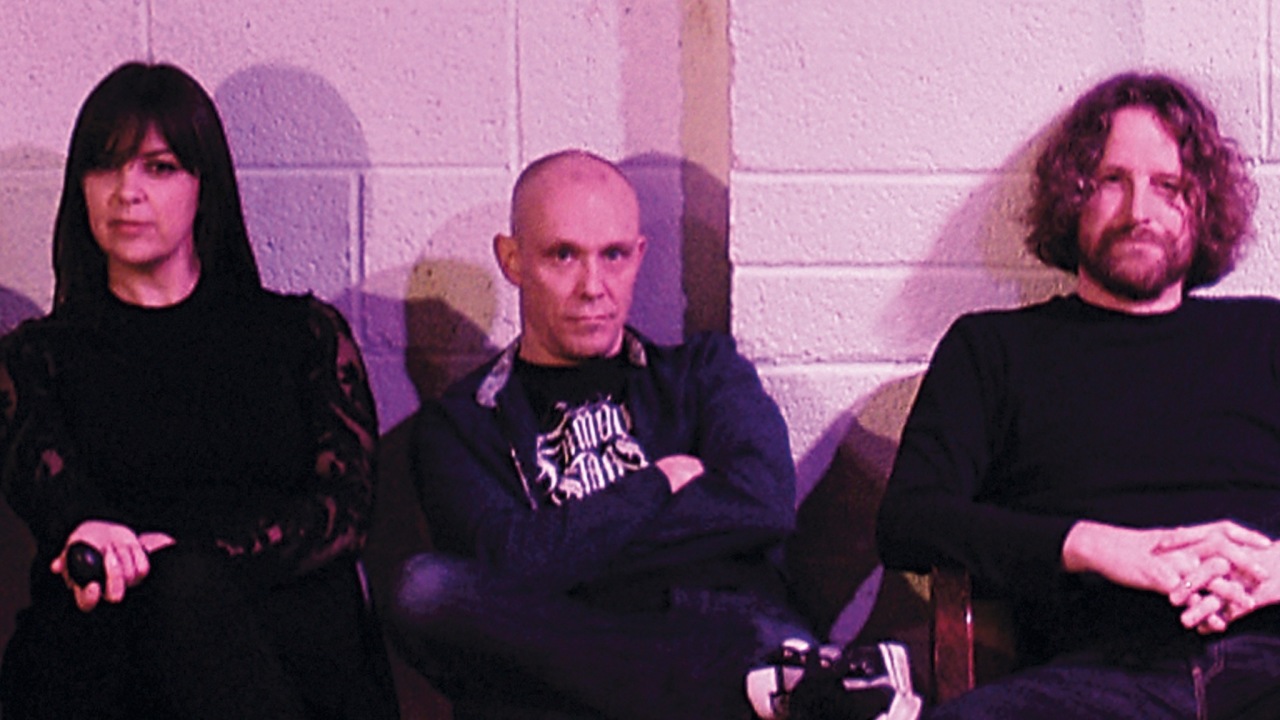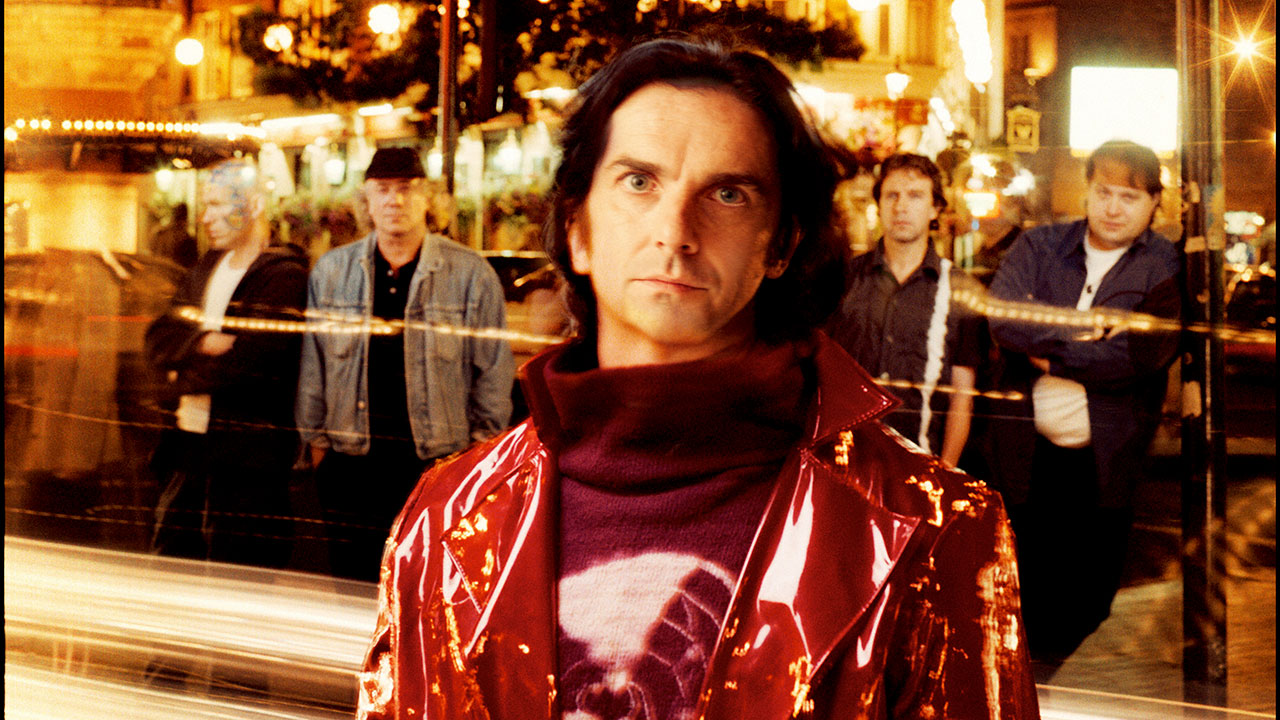Limelight: Hi Fiction Science
Folky krautrock with a hallucinogenic edge – meet Bristol’s Hi Fiction Science.

Select the newsletters you’d like to receive. Then, add your email to sign up.
You are now subscribed
Your newsletter sign-up was successful
Want to add more newsletters?

Every Friday
Louder
Louder’s weekly newsletter is jam-packed with the team’s personal highlights from the last seven days, including features, breaking news, reviews and tons of juicy exclusives from the world of alternative music.

Every Friday
Classic Rock
The Classic Rock newsletter is an essential read for the discerning rock fan. Every week we bring you the news, reviews and the very best features and interviews from our extensive archive. Written by rock fans for rock fans.

Every Friday
Metal Hammer
For the last four decades Metal Hammer has been the world’s greatest metal magazine. Created by metalheads for metalheads, ‘Hammer takes you behind the scenes, closer to the action, and nearer to the bands that you love the most.

Every Friday
Prog
The Prog newsletter brings you the very best of Prog Magazine and our website, every Friday. We'll deliver you the very latest news from the Prog universe, informative features and archive material from Prog’s impressive vault.
They’re signed to Esoteric (home to Camel, Barclay James Harvest, Tangerine Dream et al). They feature a vocalist who appears to have stepped out of the late-60s/early-70s progressive folk scene and they formed after attending a gig by Moebius and Michael Rother (two-thirds of krautrock supergroup Harmonia). They admit to cribbing drum loops from Pink Floyd and drones from Robert Fripp and Brian Eno, and had on their 2011 debut album a track entitled Zabriskie. They boast a drummer influenced by Wire and Kraftwerk and have supported North Atlantic Oscillation. As an influence, they cite watching a performance by conductor Charles Hazlewood (that featured Portishead’s Adrian Utley, Will Gregory of Goldfrapp and Tom ‘Squarepusher’ Jenkinson) of Terry Riley’s A Rainbow in Curved Air. Just don’t call them prog...
“You can say it to me but probably not to anyone else in the band,” laughs guitarist James McKeown. “They wouldn’t be very pleased. Me, I’m big into King Crimson and Van der Graaf Generator, but the rhythm section consider themselves to be more post-punk or krautrock, while the singer is a folkie.”
Hi Fiction Science – their name taken from an image momentarily flashed onscreen during Jean-Luc Godard’s Rolling Stones film Sympathy For The Devil – formed in Bristol in 2007 as an instrumental band. The arrival of singer Maria Charles changed their approach, and now they sound like Fairport Convention jamming with Can, all pure, clear English warbles and Germanic hypnotic repetition. But what to call them? Krautfolk?
“We’re progressive in the true sense of the word,” explains McKeown. “‘Prog’ means a lot of beards and capes, and I love aspects of that but I’m not entirely comfortable with us being labelled a prog band. It’s still a dirty word.”
He is, however, happy to be signed to Esoteric, especially because their roster includes Jack Bruce. “We’re not in his league – we’re just happy to be labelmates with such a legend,” the guitarist says.
Other influences on Hi Fiction Science include ‘hauntology’ and ‘psychogeography’, the latter defined as a playful study of the environment. For McKeown this involves hanging around an abandoned lunatic asylum on the outskirts of Bristol; its atmosphere informs some of the tracks on Curious Yellow, whose title is itself an allusion to a book about the hallucinogenic properties of different-coloured feathers.
Are HFS a drug band?
Sign up below to get the latest from Prog, plus exclusive special offers, direct to your inbox!
“Not explicitly, no,” he says, cagily, perhaps because all the members of the band are parents, and hold down proper, serious nine-to-five jobs, ranging from telecoms engineer to doctor. “We have to work hard to fit this into our spare time, between jobs and families.”
The five members of HFS have 10 children between them. So do they ever get together and have parties where the kids all dance to Digitalis and Circles In Halftone?
“They don’t want to know what their mums and dads do,” he replies. “They want to rebel against that and listen to Kiss FM.”
So they’re not fans of folkadelicised drone-rock?
“Not massively,” he says, rather deflated, “no.”
Paul Lester is the editor of Record Collector. He began freelancing for Melody Maker in the late 80s, and was later made Features Editor. He was a member of the team that launched Uncut Magazine, where he became Deputy Editor. In 2006 he went freelance again and has written for The Guardian, The Times, the Sunday Times, the Telegraph, Classic Rock, Q and the Jewish Chronicle. He has also written books on Oasis, Blur, Pulp, Bjork, The Verve, Gang Of Four, Wire, Lady Gaga, Robbie Williams, the Spice Girls, and Pink.

